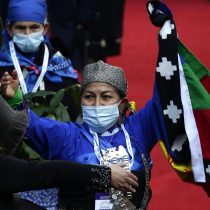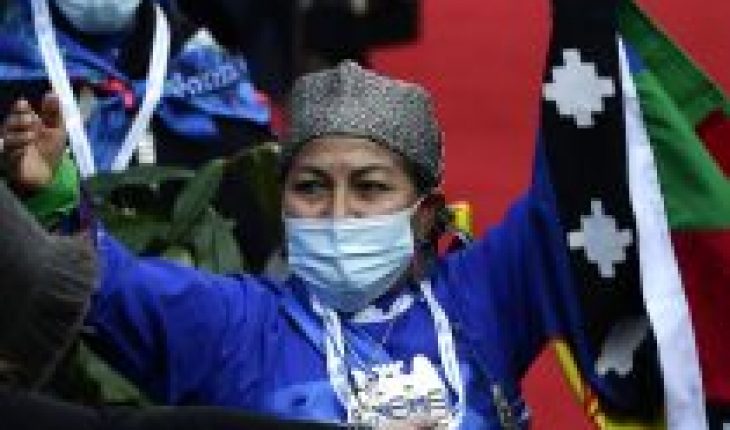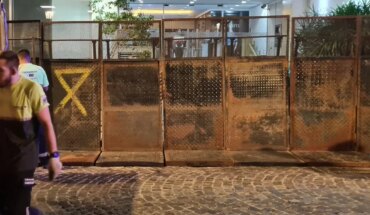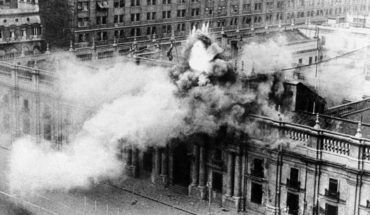
In this soil inhabit the stars.
In this sky the water sings
of the imagination.
-Elicura Chihuailaf-
To understand that Elisa Loncon is the president of the Constitutional Convention, is to give yourself the space to assimilate that there is a cultural, symbolic and political dimension that is enormous. The mere fact of starting his speech in Mapudungun on July 4 is already a movement that calls us to listen to a language that has been disowned and even silenced. Today more than ever we need to understand the spiritual dimension of this rebirth for the country. Not to do so would be to absurdly deny our history and, in turn, to make more room for confrontation and intolerance that can only lead to ruin.
In the mythology of the Mapuche people, that is, in those ancient and ancestral times it is said that there was a great flood. In the same way as babylonian or Mesoamerican myths relate it. This is how the Mapuches were born as survivors of a catastrophe in which all the forces of nature put them to the test. It is said that they made a Guillatún to calm the waters, and then from the other side of the Bío Bío go down from a hill and populate the land.
From the elements unleashed from the earth, as José Bengoa explains in History of the Mapuche People, these invincible men and women come. Let us not forget this.
The Political Constitution that will be drafted in Chile will be a cultural document in which this new paradigm that we are facing must be materialized in a body of ideas and laws. But no longer with a homogenous, colonizing and white discourse as they have tried to convince us. Because Neither Chile nor Argentina come from ships. That is a myth constructed by modernity and an idea of progress that is beginning to expire and will die.
The new Constitution will have to recognise indigenous nations and native languages as recognised by UNESCO itself in 2019. That is, to open up, learn and dialogue with a knowledge system that has ethical values and is central to survival and human coexistence. How many of us know an ancestral language? I think very few. In a multicultural Chile, mapudungun should be incorporated as a subject of training from basic education and not as a mere formality. Let’s not forget that we have a National Prize for Literature that is Mapuche, Elicura Chihuailaf, with whose verses I begin this short column.
We must bear in mind that Elisa Locon also mentions groups that have been excluded. Her message, which emphasized Chile’s transformation, placed at the heart of the Convention the discrimination suffered by women, children and dissidents. Talk about the silenced or excluded. Although it causes discomfort in the most conservative enclaves, it is obvious that the patriarchal culture as we know it also falters.
If we do not understand that the ways of perceiving reality by the citizenry have been transformed, we will be frozen in a museum. All the expressiveness of the social world and the body politics as a space of resistance and liberation, from 18 October onwards, have deployed an energy that today has an institutional channel, but nevertheless ceases to manifest itself and express itself. This is also critical to understanding this process of change. Without the will and vigour of the various peoples of Chile, we would not be discussing a new Magna Carta.
Let us think for a moment that the new Constitution is a vessel in which the demands of the people must be administered. That is, all this energy that comes to be the cultural, the social, the political, artistic, marginal and even the mythological. Then, we must take care that this container does not defund or wear out its strength that is given by this transformation.
Recognizing the earth as sacred is not trivial. On the contrary, it is necessary and very urgent today at a time when the environmental crisis is already a dramatic event.
When we talk about mother earth, we are taking charge of fertility. The peoples of the north call it Pachamama and venerate it because it is a doer of the changes in life and grants birth. Elisa Loncon had a moment to honor her mother, “a mother who made this woman able to be here.”
The voice of the ancestors.
The content of this opinion column is the sole responsibility of its author, and does not necessarily reflect the editorial line or position of El Mostrador.





